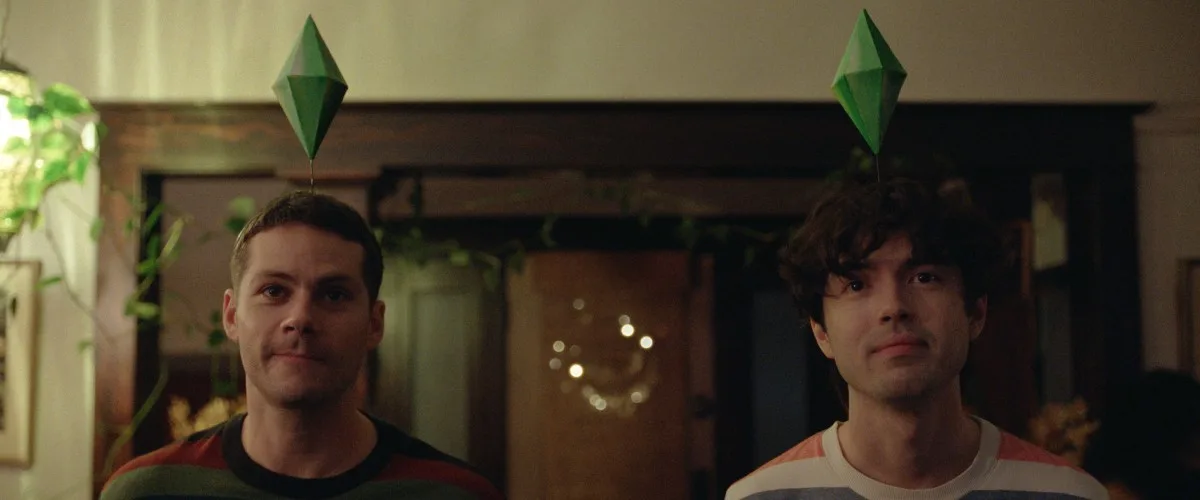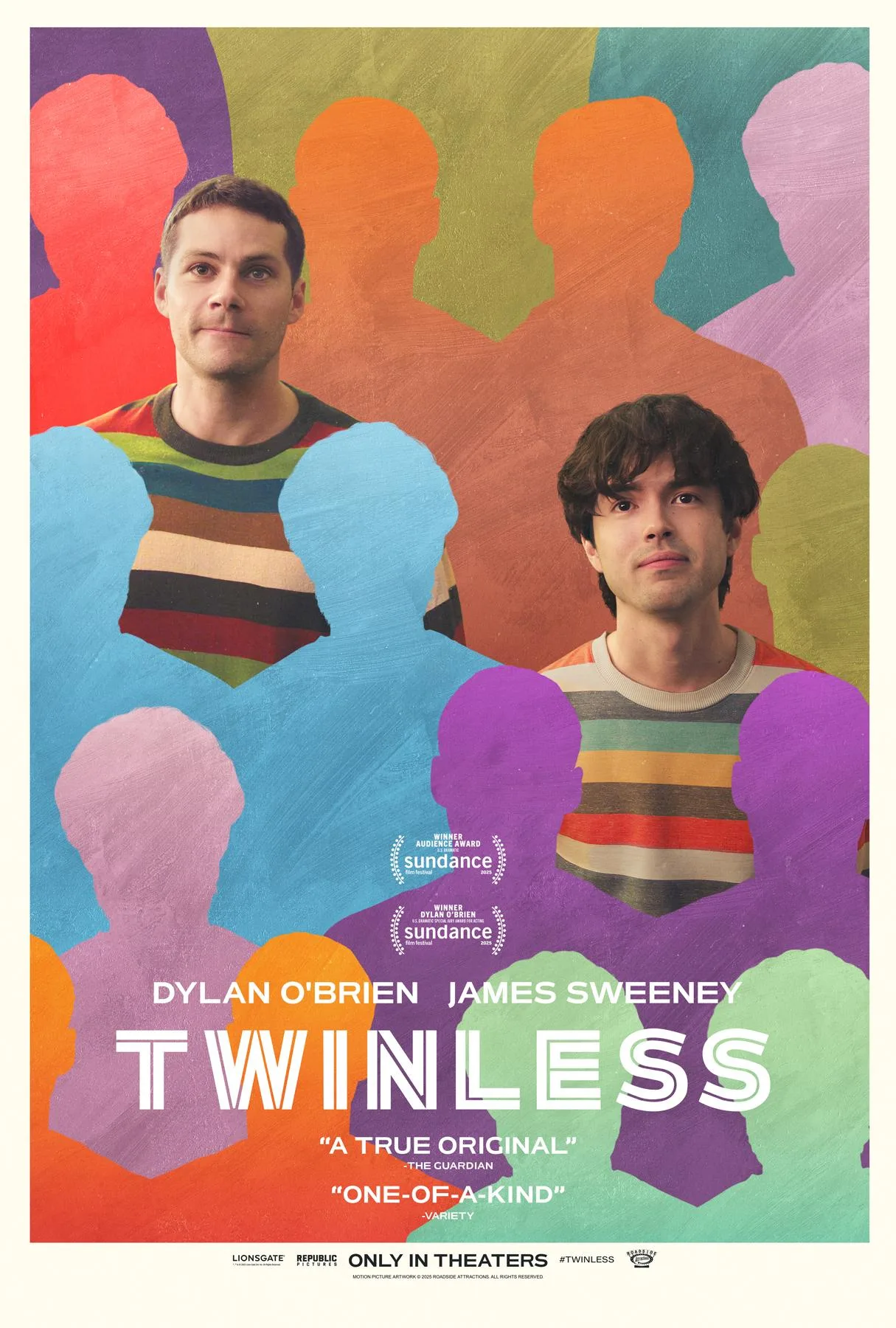This is going to be a tricky one: How to tell you about how great “Twinless” is without giving away what makes it great?
Just trust me when I say that it’s extremely clever and full of surprises, and reinforces that writer, director, and co-star James Sweeney is a bold and refreshing filmmaker to watch. I’m not quite sure how he pulled this off, because it could have gone so very wrong in so many ways.
This is Sweeney’s second feature, following the 2019 rom-com “Straight Up,” which earned him a Spirit Award nomination for Best First Screenplay. But while that film had a lively repartee and overanalytical characters who often said too much, “Twinless” is about what people withhold, what they’re afraid to say, and the suspense that arises from that silence.
Sweeney and Dylan O’Brien co-star as Dennis and Roman, two strangers who meet at a support group for twins who’ve lost a sibling. That alone provides a compelling premise. Such grief is so unusual and specific, the only people who could understand it are those who’ve suffered through it themselves. These two extremely different young men quickly form an unlikely bond: They go grocery shopping, share sandwiches, wear matching Halloween costumes, and generally fill the hole in each other’s lives that’s been left by their brothers’ demise.
Long before Roman asks whether they’d be friends under ordinary circumstances—and Dennis lets the weight of that question hang in the air a little too long—we know what the answer is. Roman is a simple, stoic guy with a muscular physique, which makes his fits of rage even scarier. Dennis is reedy and queer, with a quick, self-deprecating sense of humor. Tragedy brought them together and is the force that binds them.
“Twinless” initially features the gentle beats of a sweetly melancholy indie comedy. But Sweeney has darker and more complicated instincts on his mind, both behind and in front of the camera. He’s getting at something deeper here about the all-consuming nature of loneliness, and the extent to which people will go in their desperate need for companionship.
The film calls on O’Brien in particular to dig deep and show unexpected range. He’s reticent and tormented as Roman, but in a flashback, he also plays Roman’s twin brother, Rocky, who’s the complete opposite: flirty, charismatic, and comfortable in his own skin as an openly gay man. If you only know O’Brien from “The Maze Runner” movies and the odd Taylor Swift music video, you’re in for not one but two distinct and thrilling performances.
Meanwhile, Sweeney, as a co-star, has a delightful way with an understated one-liner. Dennis seems to be in constant conflict with himself over whether to say what he’s thinking out loud, which results in some hilariously awkward moments as well as genuine tension. The insecurity that lurks underneath, though, is the source of the film’s increasing drama.
Sweeney, as screenwriter, gives us enough credit as an audience to create characters who do mean and messy things – to make likable people unlikable, and hope that we’ll stick with them. This is especially true when Roman starts dating Marcie (Aisling Franciosi), the perky receptionist at Dennis’ office, which changes the dynamic between all three people. Marcie is another great example of Sweeney’s ability to craft characters who are more complex than they initially seem; she comes off as sunny and accommodating, but eventually gets the chance to show some unexpected spine. And in a brief role as Roman and Rocky’s mother, Lauren Graham provides warmth and grounding.
Sweeney, as director, favors stylistic flourishes that enhance the storytelling rather than distract from it. These include long tracking shots, thoughtful use of split screen, and the inspired choice of the colorful Hopscotch immersive art experience in Portland for a moment of high drama. The costume design from Erin Aldridge Orr emphasizes the duality of these characters. And the score, composed by frequent Bong Joon-ho collaborator Jung Jae-il (“Parasite,” “Squid Game”), adds an intriguing, inquisitive quality that draws us in further.
All these elements come together with a delicate tonal balance that would have been difficult even for veteran filmmakers to achieve. See “Twinless” with your other half, whoever they may be. This is a movie you’ll want to talk through with someone afterward.




















